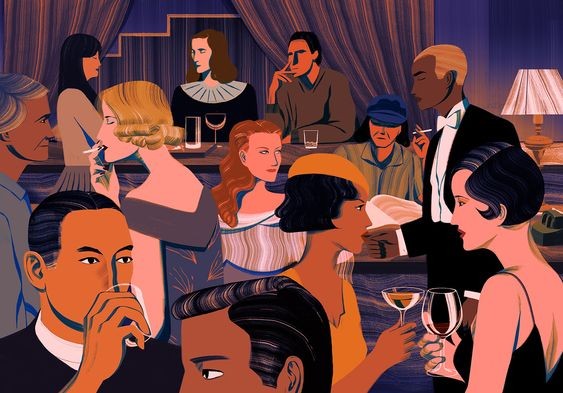
You are what you eat.
It is the notion that most of us come across at least once in our life, whether in an advert promoting veganism or articles about healthy eating. Is this quote really applicable to our day-to-day life eating styles? Nowadays, do people go too far and base their status and privilege on food?
I have recently watched the movie named, “The Menu” and it provokes a lot of philosophy behind what we eat and most importantly, how we eat. I’m not going to explain the plot in this blog but I will reflect on some of the ideas from the movie that resonate with me.
What’s fundamental to this movie is how consumerism is rooted in our modern society and people become insatiable with their food or purchase. To illustrate this, we often derive sensory pleasure from eating junk food or sweets which leads to a fleeting experience at best. The harmonious blend of flavors and textures that caress our tongues is a near bliss. We wish it could last an eternity. Even though we are fed with a chef’s-kiss dish or haute cuisine from a posh restaurant, we still can’t deny the urge to try the rest of the dishes on the menu. We crave more. From the plating to the ingredients, the menu, in and of itself, leaves the customers in awe and works up their appetite. This is the tipping point when a lot of them become addicted to food and develop a long-term obsession with dining.
In the dining world, I suppose it is a common problem where people often appreciate the food, not the chef—the master hand behind it. Often, they jump at the opportunity to capture photos of the dishes and broadcast them to the virtual realm of social media —"Look at me, dining at this amazing restaurant! You're missing out if you don't experience it firsthand." No matter how excellent the camera’s quality is, it can never capture the flavor and richness of the dish. The mere intention of eating out is to show off to people that you barely interact with while it is supposed to be enjoying your food. Besides, eating out at fancy restaurants becomes proof of how much money you have and can afford.
Taste. Savor. Relish. Be mindful, but do not eat—these are my favorite words said by the celebrity chef Slowik in the movie. Since we are so eager to make copies of reality, we come to overlook those real experiences. To my knowledge, I have read that in some meditation retreats, practitioners are instructed to savor meals with their eyes closed. It is said that when you close your eyes while eating, other senses are heightened to bring a better taste even if it is just a bowl of salad. I have tried this at home once with a simple meal and each bite chewed slowly—the flavor is there, lingering in my taste buds. Then, I feel grateful for my mother who cooks it. This method can be easily incorporated into our daily life and led us to appreciate the food more.
The most essential ingredient in cooking is undeniably, love and passion though we cannot taste but feel them in our souls. The hours that it takes to cook a fine meal and a great deal of concentration and patience that it requires to prepare exquisite plating are what essentially boils down to being a top-tier chef. Since we are living in a world of consumerism prompted by the media that encourages us to buy more and have more, most people don’t care about that anymore. Everything is determined by the monetary value. We become obsessed with the idea to cultivate the expensive taste so that people will have a strong impression on us. In this sense, the whole “you are what you eat” phrase completely goes out the window. What could be more appealing to you when you clock out in the evening with a grumbling stomach? A cheeseburger or a signature dish from an avant-garde chef that you have never heard of? I’ll let you decide on it.
P.S. The image used in this blog goes to the rightful owner - behance.net
Title: delete "the"
Thank you for your corrections @JGComm